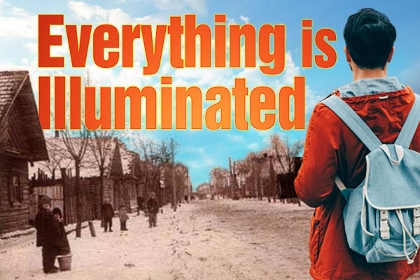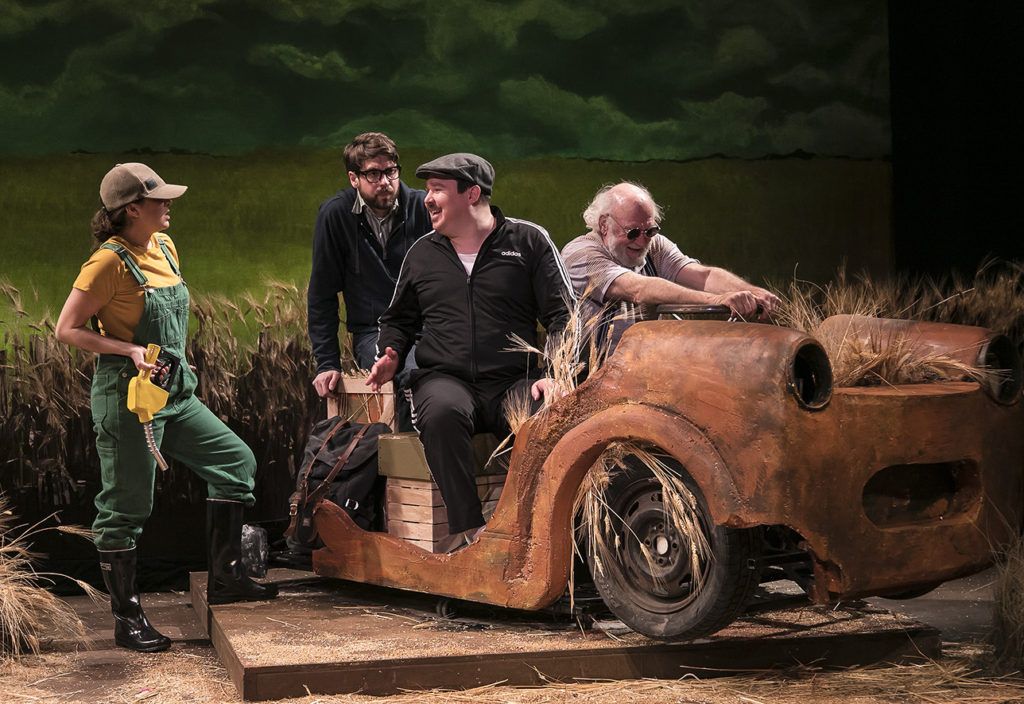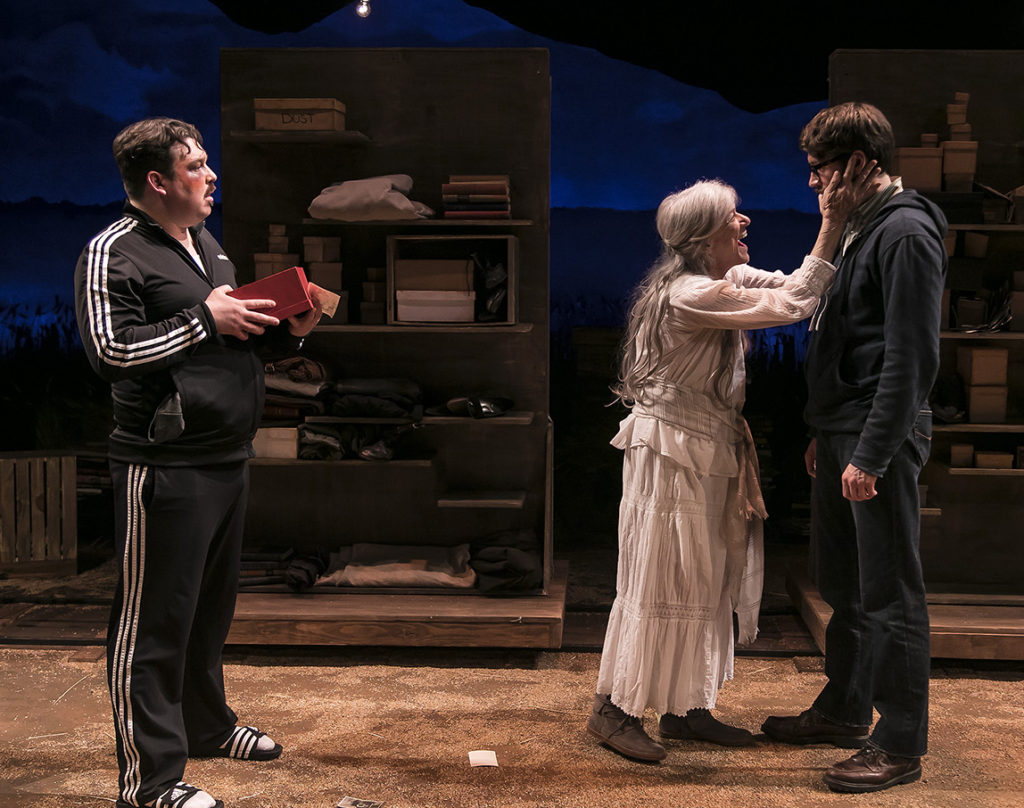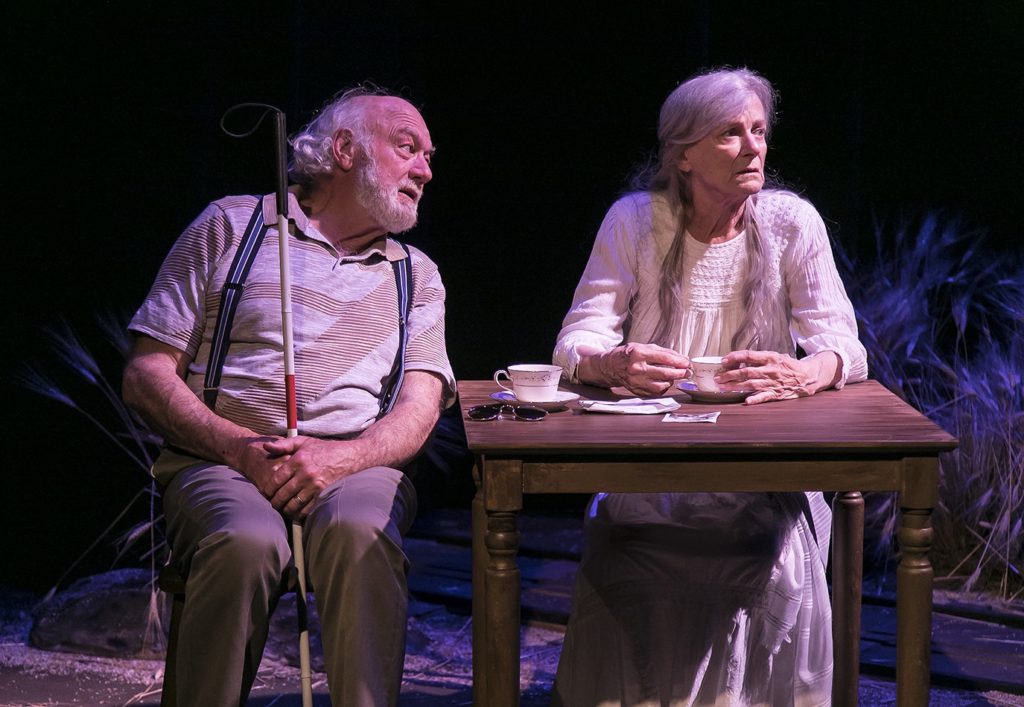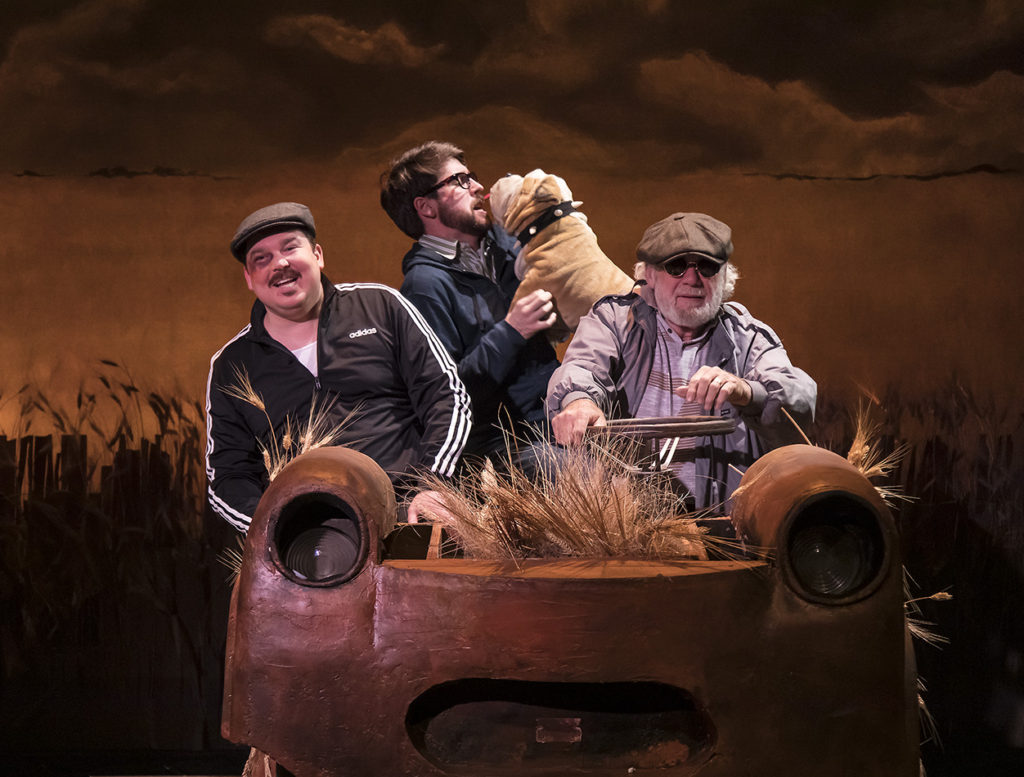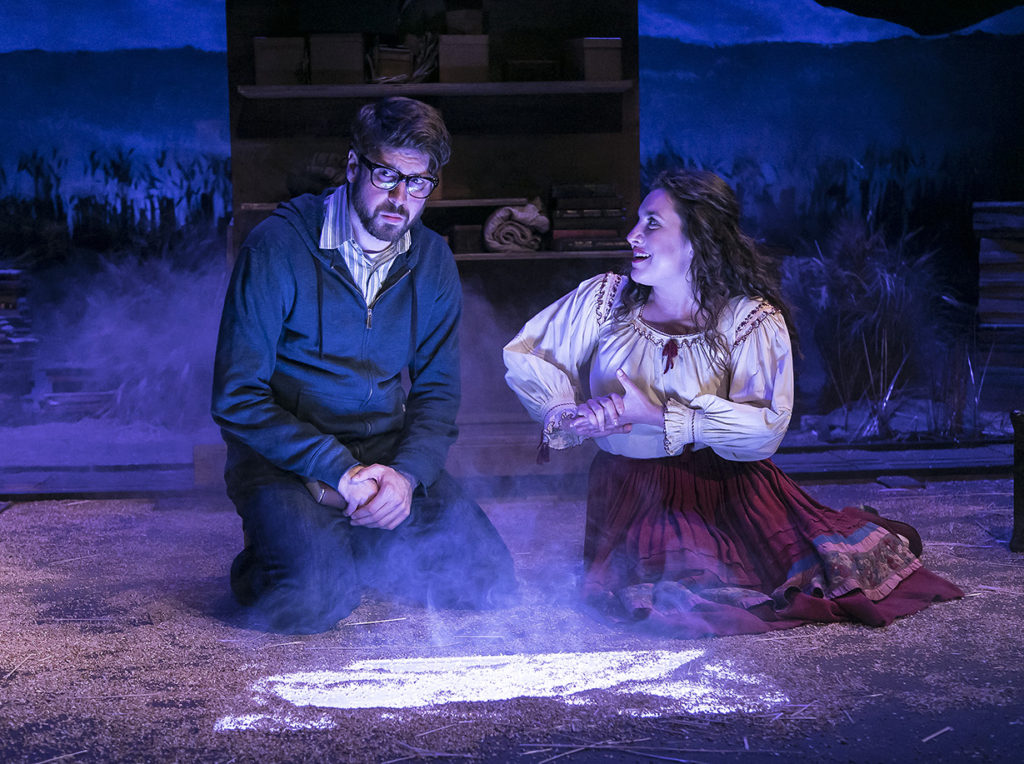SOME, NOT ALL, IS ILLUMINATED
Sadly, not everything is illuminated in British playwright Simon Block’s fascinating but problematic adaptation of Jonathan Safran Foer’s best-selling novel about a young American writer who hires a Ukrainian translator to take him to the town where a woman named Augustine saved his grandfather’s life in WWII. Or so Jonathan thinks. All he has to go on is a photo. The real-life Foer came up empty-handed on his real-life trip and fictionalized what may have happened in the real-life shtetl of Trachimbrod since its beginnings in 1791 up to its destruction by Nazis in 1942. Since Foer’s dad and granddad came from this exclusively Jewish town, Foer was obsessed and ended up writing a narrative — published in 2002 — that involves time shifts, different narrative voices, and a melding of fantasy and reality, dovetailing in topics including the Holocaust, sex, guilt, memory, and cultural identity.
That’s a lot to take on in a play, yet Block attempts just that in two acts. He compresses Foer’s sprawling novel into the Jewish-American author’s actual and metaphorical search for Augustine. There is wry, whimsical, charming cross-cultural humor and delicious details in this stage version, but the urgency behind Jonathan’s voyage, let alone any sense of its success, is never felt, while the second act is almost too harsh to process — one actor is given the task of telling a long, horrifying tale of a Nazi atrocity, but it’s unearned and too jolting for us. Missing is the middle act which would have bridged us from the humorous to the heavy; the first act definitely needs to be more foreshadowing.
Played against François-Pierre Couture’s delightful, gorgeous set complete with train tracks and stacks of books mixed in among the wheat stalks, the story moves high-strung Jonathan (Jeremy Kahn, fresh on the heels of playing the role at Berkeley’s Aurora Theatre) from Prague to Kiev to rural and xenophobic Ukraine where Americans, like all strangers, are distrusted, envied and fleeced. Jonathan entrusts himself to the very conditional care of his dweebish young translator Alex (Matt Wolpe, amusing and endearing in his convoluted English and utterly unearned self-confidence) and their driver, Alex’s half-blind, crusty grandfather (a threateningly funny Adrian Sparks in what proves to be a Sisyphean role). Any slightly attentive playgoer will notice from grandpa’s defensiveness that he has secrets (apparently Ukraine’s greatest natural resource).
Along with flashbacks to 1791 and 1804, where Jonathan discovers the pleasant and painful truths about his ancestors Brod (Emily Goglia) and Yankel (Mr. Sparks), Foer and Block indulge in some “fish out of water” fun over Jonathan’s ignorance of Eastern European mores, grandfather’s stinky and relentlessly pestering dog named Sammy Davis Jr. Jr., the boring endless vistas of flat fields, and the astonishment that Jonathan won’t eat meat — with quite a few entertaining results.
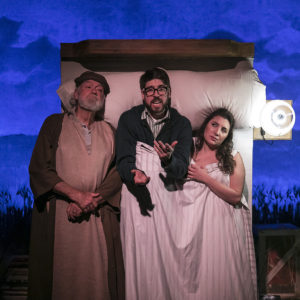 Less palpable in the play is what drives Jonathan’s identity quest, as well as gains from what he learns. His final valedictory speech — a glowing description of how sexual intercourse illuminates the earth into outer space and how people persist through that lasting light — seems too radiantly consolatory given the unspeakable horrors that precede it. Whatever “second chances” Jonathan Foer achieved by returning to his roots remain achingly elusive.
Less palpable in the play is what drives Jonathan’s identity quest, as well as gains from what he learns. His final valedictory speech — a glowing description of how sexual intercourse illuminates the earth into outer space and how people persist through that lasting light — seems too radiantly consolatory given the unspeakable horrors that precede it. Whatever “second chances” Jonathan Foer achieved by returning to his roots remain achingly elusive.
Mr. Kahn is very much the Assertive New York Jew, but he feels better-suited for Neil Simon. Yeah, Jonathan’s obsessive and nerdy, but it may have helped to bring him down; instead, this feels too much like a play about Jonathan, not Alex — it’s Jonathan’s quest but Alex’s story. Seeing events through Alex’s head is one of the book’s crowning achievements and the initiator for many types of enthralling uncertainties. As he does in the book, Alex addresses us directly, but it doesn’t feel like his story here — when it should.
It may have helped if Jonathan Fox’s direction had hurled the situation into the audience somehow; even grandpa’s amazing rust-and-hay-covered car simply goes side to side on a mini-turntable upstage left, when it desperately needs to be down center in our faces (but, man, are those dog bits ever funny). Also on the set were unused train tracks in every scene that go across the length of the stage; it’s uncertain what they represent other than Jonathan’s arrival.
Pablo Santiago’s saturated golden lighting on their adventure is unspeakably beautiful, and Dianne K. Graebner’s black, Adidas slippers and track outfit for Alex are hilarious. Ms. Goglia is lovely when portraying a long-dead relative, but her other characterizations are almost corny, which only highlights the script’s imbalance. As always, Anne Gee Byrd is radiant, even more so than usual because she doesn’t project looniness as the woman lost in memory at the heart of Foer’s mystery, here known simply as Old Woman.
There’s no equivocation about the love put into Ensemble Theatre Company’s sumptuous production with some truly wonderful moments involving accents, character, expressiveness, and more. Wonkily told, it’s still a great story, one that casts its light on a vast and unforgivable darkness.
photos by David Bazemore
Everything Is Illuminated
Ensemble Theatre Company
The New Vic, 33 W. Victoria Street in Santa Barbara
Wed-Sat at 8; Sun at 2 & 7; Tues at 7 (April 16); Sat at 4 (April 20)
ends on April 28, 2019
for tickets, call 805.965.5400 or visit ETC
